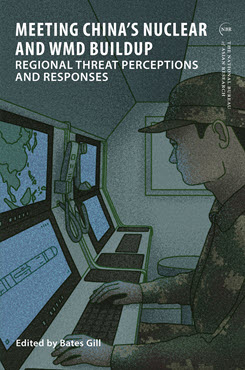Essay in NBR Special Report 109
Will the Pathogen Spread South?
The Implications of a Chinese Biological Weapons Program for Vietnam
This essay examines the possibility and consequences of a Chinese use of biological weapons against Vietnam.
EXECUTIVE SUMMARY
MAIN ARGUMENT
MAIN ARGUMENT
Despite the growing ease of delivering a biological attack, Vietnam currently lacks a national biodefense strategy. This biodefense weakness leaves the country vulnerable. In the context of China’s growing assertiveness in the South China Sea and Vietnam’s serious effort to expand defense relations with members of the Quad, Vietnam could draw China’s ire due to its cooperation with China’s principal enemy, the U.S. In a conflict scenario, China might attempt to use WMDs, not as a substitute for but as a force multiplier of its conventional forces to exert military pressure on Vietnam under a “bleeding Vietnam” strategy. Such a strategy would be an effort to compel Vietnam to stick to neutrality, as China undertook in 1979 and during the 1980s when Vietnam allied with China’s then principal enemy, the Soviet Union. Although China claims to not possess any biological weapons, Vietnam needs to be cognizant of such a threat due to the disruptive and destructive impact such an attack could have on its military and public health.
POLICY IMPLICATIONS
- Vietnam needs to develop a national biodefense strategy to better prepare for the next pandemic, whether it is artificial or natural.
- Vietnam and the U.S. should consider expanding existing cooperation on WMD nonproliferation in general and explore more areas of cooperation that are security-insensitive but public health–urgent in particular.
- The U.S. should be open to working with Vietnam’s traditional security partners, including Russia, to help Vietnam bolster its biodefense capability.
- The U.S. should be aware of Vietnam’s foreign policy of diversification and multilateralization, most importantly its balancing act between the U.S. and China. This means recognizing that its efforts to help Vietnam develop a national biodefense strategy could arouse Chinese suspicion of Vietnam’s intentions and invite unnecessary punishment. The U.S. thus might need to be patient if Vietnam rejects any U.S. initiatives because it wants to gauge reactions from China.
Khang X. Vu is a PhD Candidate in the Political Science Department at Boston College and a 2023–24 Hans J. Morgenthau Predoctoral Fellow at the University of Notre Dame.



